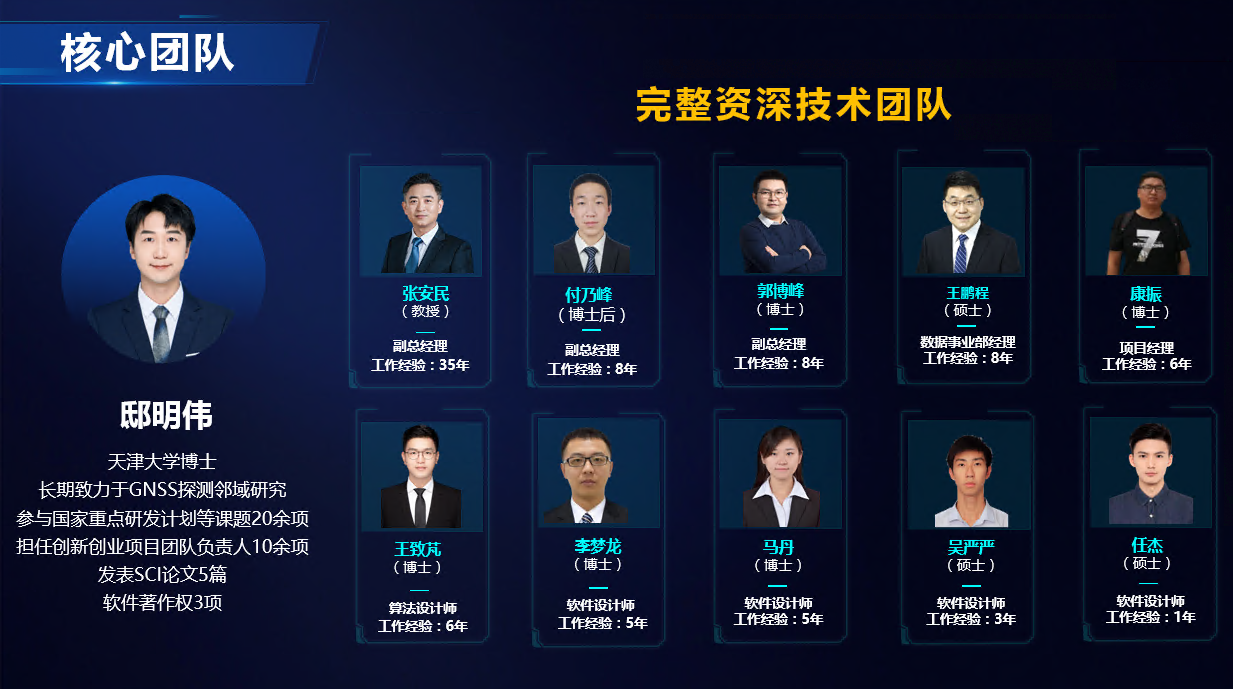The 8th China International College Students'“Internet+” Innovation and Entrepreneurship Competition was successfully wrapped up. The team, led by Dr. Di Mingwei from Tianjin University’s School of Marine Science and Technology, won the Gold Award with the project “Global Climate Change Monitoring Based On CubeSat”. It is also the first time that Tianjin University won gold medal in the Industry Proposition Track of the competition.

Accurate meteorological data and services are not only applied in weather forecast, but also play a vital role in navigation and aviation, smart agriculture, international engineering and national defense and security. In this crucial field, however, we mianly rely on foreign technologies due to insufficient meteorological satellites in China.
“To build China into a space power is our team's unremitting pursuit.” said Dr. Di Mingwei. With the support of Marine GLAB, the Ocean 3I Research Center, and the Center for Remote Sensing of Tianjin University, the team proposed the GNSS Meteorological Constellation Project to send 108 meteorological satellites with independently developed occultation sounders into space and form the networking.. “After networking, it will take only 10 minutes to update global data, 24-fold faster than today.”
To accomplish the project, the team has been devoted to developing GNSS occultation receiver and studying core algorithm on GNSS remote sensing. “In terms of hardware, we have developed GNSS occultation receiver featuring low power, a small size and high accuracy. In algorithm’s regard, breakthroughs have been made in technologies such as carrier phase measurement. With these efforts, we achieved more accurate measurement and more importantly, successfully solved the worldwide problem of signal jitter and measurement difficulty below 3km,”said Dr. Di.

No pains, no gains. In the past years, Dr. Di’s team has published 37 papers and applied for 22 software copyrights and other patents on the three core technologies, laying down specifications and norms for the industry.
"Along with technological breakthroughs, we also strive for commercialization, and have been constantly improving the business model." In recent years, China has enacted a host of policies and regulations to promote the construction of space and meteorological database. However, meteorological detection is rarely mentioned, so the team answered to the national call and developed two profitable approaches— data sales and accurate meteorological services. "The cost is greatly reduced because we have mastered the core technologies, and that in turn helped us quickly grab some market shares."
"Our team has signed contracts totaling 6.22 million yuan. We have reached cooperation with FutureSpace in fields of detection payload development, satellite development and data services. FutureSpace is the company that raised the competition research topic in the first place. We expect to see a revenues of over 50 million yuan in 2025." Dr. Di Mingwei told the reporter excitedly.
In the future, this project team will turn their attention to the sea. By increasing the types of detection instruments, the team will study the new model of GNSS ocean reflection to extend from meteorological monitoring to meteorology+ ocean detection, further enhancing its international influence, and contributing to China’s rise as a strong maritime country.
By Zhang Zanni
Editor: Eva Yin






